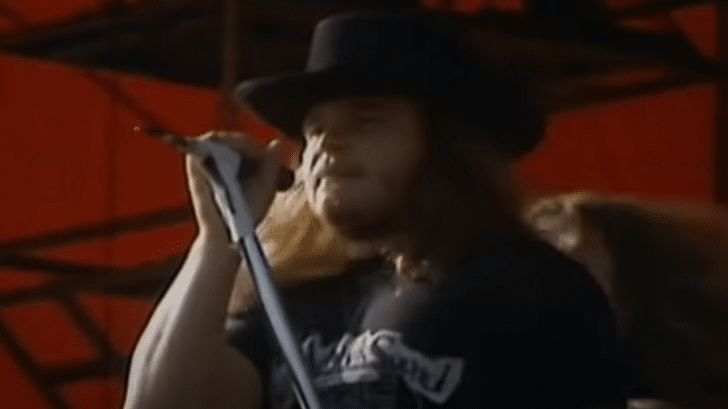The 1970s, a time of cultural upheaval and artistic experimentation, birthed some of the most controversial songs in music history. These tunes, etched into the annals of time, challenged societal norms and sparked debates, leaving an indelible mark on the music landscape.
Each of these songs dared to challenge the status quo, leaving an enduring legacy in the world of music and social commentary. As we reflect on these tunes, we’re reminded of the transformative power of music to provoke thought, inspire change, and challenge the norms of society.
1970: ‘Ohio’ – Crosby, Stills, Nash & Young
In response to the tragic shooting of unarmed student protestors, Crosby, Stills, Nash & Young unleashed ‘Ohio.’ An anthem of protest, it boldly targeted former President Richard Nixon. Its overt political stance led to bans on mainstream radio stations, showcasing the power of music as a political tool.
1971: ‘The Revolution Will Not Be Televised’ – Gil Scott-Heron
Gil Scott-Heron’s radical spoken-word poem, turned into a song, served as a call for grassroots activism and a stark warning against media manipulation. Its relevance echoes through time, highlighting the enduring struggle against media brainwashing and the importance of grassroots movements.
1972: ‘Give Ireland Back to the Irish’ – Wings
Amidst tensions in Northern Ireland, Paul McCartney and Linda McCartney crafted this political anthem in just a month. The song faced a broadcast ban in the UK due to its sensitive subject matter, highlighting the impact of music on political discourse.
1973: ‘Living for the City’ – Stevie Wonder
Stevie Wonder delved into the realities of inner-city life and systemic racism with ‘Living for the City.’ Its powerful narrative and soulful melodies made it a groundbreaking hit, challenging societal norms and racial prejudices.
1974: ‘Sweet Home Alabama’ – Lynyrd Skynyrd
Lynyrd Skynyrd’s Southern anthem took a swipe at Neil Young and referenced racist politics. Despite its controversy, the song became a radio classic, demonstrating the complex interplay of music, politics, and perception.
1975: ‘The Pill’ – Loretta Lynn
Loretta Lynn fearlessly tackled the topic of birth control with ‘The Pill,’ urging married women to take control of their reproductive choices. The song faced bans and condemnations but fueled sales, emphasizing the power of music to spark conversations about taboo subjects.
1976: ‘Hurricane’ – Bob Dylan
Bob Dylan’s ‘Hurricane’ shed light on the unjust trial and imprisonment of boxer Rubin Carter. Its storytelling prowess highlighted Dylan’s continued relevance in the face of injustice, becoming a rallying cry for social change.
1977: ‘God Save the Queen’ – Sex Pistols
The Sex Pistols’ punk anthem, ‘God Save the Queen,’ equated British royalty with a fascist regime. Banned by the BBC for its audacity, the song became a symbol of punk rebellion, challenging established norms and institutions.
1978: ‘(Sing If You’re) Glad to Be Gay’ – Tom Robinson Band
Tom Robinson Band’s groundbreaking song celebrated gay culture while calling out societal hypocrisy. BBC Radio 1’s refusal to play the song didn’t deter its popularity, emphasizing its role as a trailblazing anthem for the LGBTQ+ community.
1979: ‘Another Brick in the Wall (Part 2)’ – Pink Floyd
Pink Floyd’s anthem against authoritarianism, ‘Another Brick in the Wall (Part 2),’ faced opposition from figures like Margaret Thatcher. Its use by South African students in anti-apartheid protests solidified its status as a symbol of resistance against oppressive systems.

